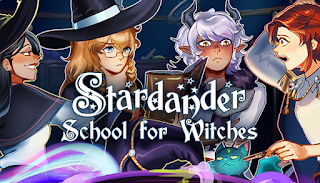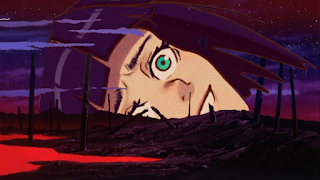It's strange to call this a post-mortem, as Aground is still very much alive. But, I have moved onto new games, with Stardander School for Witches now in Early Access, and Aground Zero not far behind.
The key takeaways from Aground's strange journey are:
- Early Access is much better than you think it is.
- Don't lose hope until after the full launch, and maybe not even then!
This blog post will mostly cover post-launch, as I had a thorough pre-mortem I made during Early Access here: https://david.fancyfishgames.com/2018/12/aground-pre-mortem-on-borderline-sales.html
The Numbers
Without further ado, here's our full lifetime sales (copies) chart:
There have been nearly 60k lifetime steam copies sold, and that's not including other sites, key activations, or consoles.
The first small spike from several 100k+ subscriber youtube videos (visible in the pre-mortem) barely shows up in this chart - which is completely dominated by the full launch and daily deal. Before Aground, everyone told me that you only get one launch when going into Early Access - this was true. But they said that one launch is the Early Access launch, which was completely false.
In Early Access, your launch visibility round begins when you transition to full release.
And this is huge. Even if the ~2 years of Early Access sales look pitiful before the post launch sales, during that time we were building up a following, wishlists, and reviews (not to mention getting feedback and improving the game).
When Aground transitioned from Early Access to full release on April 17, 2020, it had 293 reviews (334 if you count people who got the game for free) and 25,681 wishlists - which is far above most games that launched that week.
We only had 2k wishlists before entering Early Access (August 8th, 2018), and from experience, it's tough to drive traffic to a coming soon page and gain wishlists. During Early Access, wishlists came easily, most of them probably not wanting to buy a game in Early Access, but the fact that there were sales meant Steam was driving traffic to our page, and traffic means wishlists.
All of these wishlists and sales put us on the front page of Steam under new releases during full launch, and later Valve contacted me offering to put Aground in a Daily Deal, which means our game would be on sale for 24 hours and featured on the front page. This made an even larger spike than the launch - and while it's tough to tell from the sales chart, that's actually 2 days of > 1,000 sales (it starts a new day at midnight PT).
The last labelled spike is a major post-launch update - the hybrid path. While tiny compared to launch, it was still worth it. I feel like updating your game post launch is a generally good thing to do (although, we only had one major post launch update, as we wanted to move on to other games).
The unlabeled spikes after that? Sales - seasonal, festival, etc. While we're definitely seeing a slowdown in sales, we're still getting more than we had during the end of Early Access - and seasonal sales still draw a big spike (although, the most recent sale was 66% off, so it's not as much revenue as the spike suggests). We still have over 50k wishlists, and that number tends to go up over time - more people add Aground to their wishlist during sales/events than buy or delete the game.
We are now over 3 years since our full launch, and sales are still strong enough to fund our next two games. Never underestimate the residual income! Why aren't sales dropping to essentially zero like our older games? I suspect it's because people are still discovering and playing the free web version - and a lot of those players are getting older and are now able to buy the game.
The last number I'd like to share is our console information. I don't have a nice graph as I only get monthly reports (and I'm too lazy to combine them into a graph), but in general all 3 consoles combined add up to about 25% of our steam total. This isn't as high as I was expecting, and surprisingly XBox is the biggest chunk of that, even though I've heard from other devs that the Switch was huge for them, even compared to Steam. While an extra 25% revenue doesn't sound like a lot (especially with the challenge of porting a game to consoles), it's still worth it - especially since console sales and Steam sales don't cannibalize each other (it's uncommon for someone to decide not to buy a game on Steam because they can get it on console or vice versa - they usually want it on their platform of choice, and some people buy on both)!
On Losing Hope
In the end of my pre-mortem, you could probably tell I was beginning to lose hope. Everything we did before the full launch ended up being disappointing or meeting my bare minimum expectations. So, it should come as no surprise I expected a lackluster full launch - especially after hearing that the big launch was the early access launch. Luckily, that wasn't the case for Aground - and all of that time and effort was hugely valuable even if it didn't meet my expectations in terms of sales at the time. I've heard many similar stories of devs losing hope yet somehow persevering... and then ending up highly successful. Obviously there's survivorship bias here, but it can work out - especially when you're in Early Access and a lot of people are wishlisting and waiting for the full release.
On Early Access
If you can commit to making it to the full launch and believe in your project throughout a potentially lack-luster Early Access, it can truly pay off. Having reviews on launch is huge - and you can more easily gain wishlists in early access than on a coming soon page. I'm not the only one who has noticed this: https://howtomarketagame.com/2023/07/27/should-you-do-early-access/ .
I definitely feel strongly enough about the value of early access that I've just launched my next game, Stardander School for Witches, in Early Access a few days ago.
Downsides of Early Access
- Sales are weak in early access - so if you never transition to full release, you'll never get your launch visibility round and will do worse than if you just started with a full release.
- Launching in early access takes you off the upcoming games list - so if you're gathering a lot of wishlists and are prominent on the upcoming list, entering early access could potentially hurt you.
- Some games just don't easily fit the early access model.
- You do need to build momentum during early access for it to have value - if you get no sales, views or wishlists, no amount of time in early access will help.
Concluding Thoughts
Aground is by far my most successful game, and I consider it a huge success (both financially and otherwise). And Aground is by no means one of the best selling games on Steam. Aground currently has 1,381 reviews, and there are games with 10k reviews, 100k reviews, even 1 million reviews (likely over 1000x our sales). The more successful a game is, the more visibility it gets, and the more successful it becomes in a seemingly endless upward spiral.
Aground was lucky enough to have some of that positive spiral - and I didn't really have to do much post-launch to make it happen. All of the hard work was done before - I just couldn't recognize it at the time. By the time of the launch we had enough momentum to hit that spiral.
 |
| See Video Game Insights for the full infographic - and this is from 2020, it's only gotten worse. |
There's also the opposite, a downward spiral where a game dies in obscurity. Aground is in the top 9% on the infographic above, meaning 91% of games never reach Aground's sales, let alone anything higher. Even though I know early access sales numbers are low, I am still worried after Stardander's launch, where we barely hit my lowest estimate. Can Stardander do the same thing as Aground with Early Access, or is it stuck in a downward spiral like the vast majority of games? Does Aground's path to success even work for story-heavy games or visual novels?
I don't have all the answers, and I'm worried even though I just said to have hope in this blog. But, that's a part of game development - you have to learn to manage your fears and try to give your game the best chance of success you can.










Your game is successful because you worked hard on it, unlike the vast majority of other developers. People can feel it.
ReplyDelete